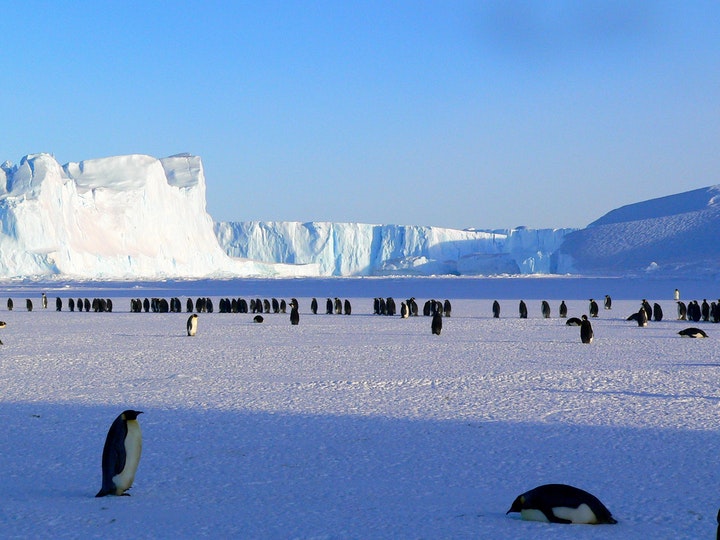New research based on 40 years worth of satellite data has found that Antarctic sea ice is decreasing at a rate faster than that in the Arctic.
Claire Parkinson is a senior scientist at NASA and author of the new study that was published in the PNAS scientific journal on Monday. In an interview with CNN, she underlined the impact of sea ice on the Earth’s climate, saying, “Sea ice also affects the polar ecosystem, including penguins and whales and seals, petrels and albatrosses, krill, and a whole range of additional animals and marine plant life.”
Sea ice is responsible for reflecting 50 to 70 percent of sunlight back into space. When sea ice melts into dark ocean water it absorbs 90 percent of sunlight, which contributes to rising temperatures around the world.
Antarctic sea ice has long stumped scientists and while sea ice in the northern Arctic ocean has been melting over the past few decades, sea ice surrounding Antarctica had been steadily increasing. This anomaly was frequently pointed out by climate change deniers as a counter-argument, but recently published research shows that’s no longer the case.
The satellite data gathered in the study shows that the yearly average sea ice in Antarctica continued increasing until 2014 when it reached a record high. After that, Parkinson said that it began abruptly decreasing and reached a record low in 2017. She says it’s too early to tell what caused the reversal of this trend.
Dr. Kaitlin Naughten, a sea ice modeler at the British Antarctic Survey, said that the westerly winds that surround Antarctica were responsible for protecting the continent from atmospheric warming.
She told CNN, “This means that Antarctic sea ice doesn’t respond directly to global warming averaged over the whole planet, but rather to changes in these winds. Climate change is affecting the winds, but so is the ozone hole and short-term cycles like El Nino. The sea ice also responds to the level of ocean mixing, which is affected by meltwater from the Antarctic Ice Sheet.”
The decrease of Antarctic sea ice is a new worry for scientists. The growth of Antarctic sea ice served to offset some of the rapid ice loss in the Arctic, but now that ice is melting in both hemispheres, scientists are concerned about how the planet’s temperatures will be impacted.
